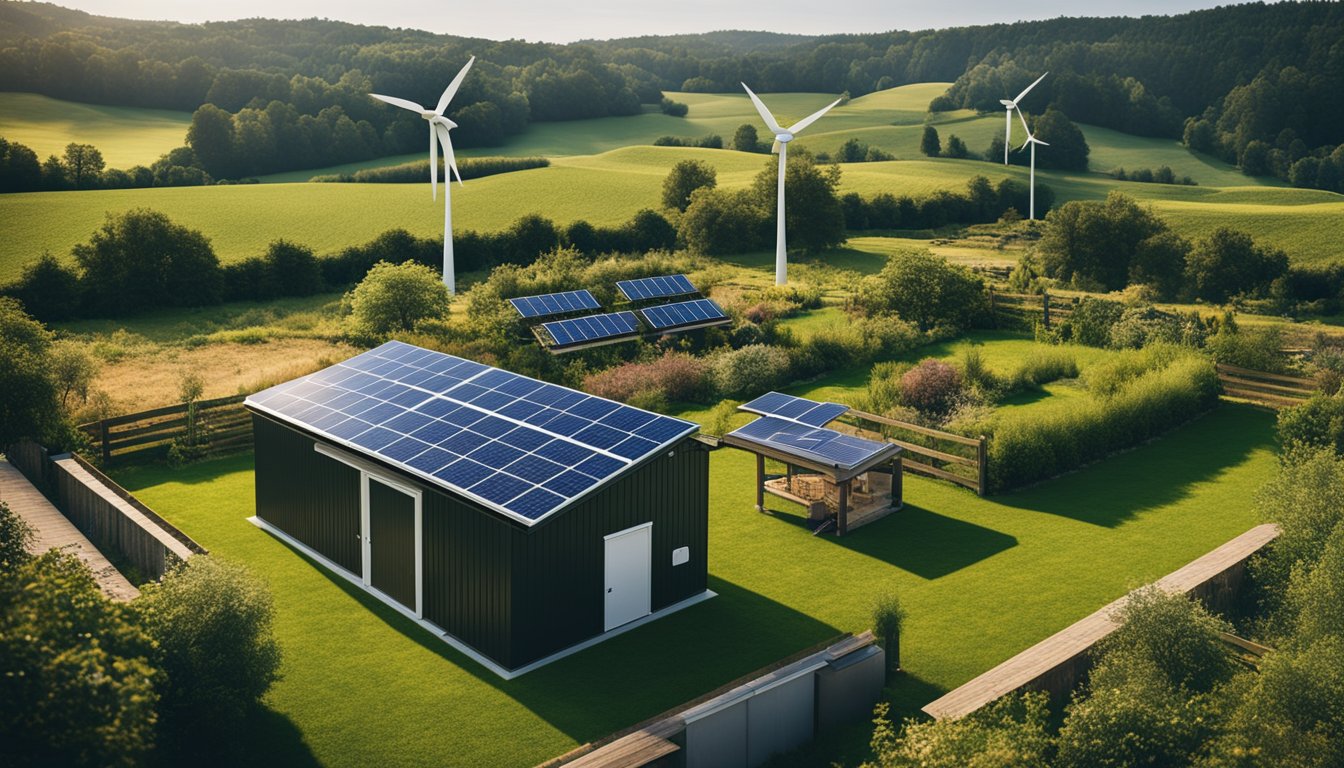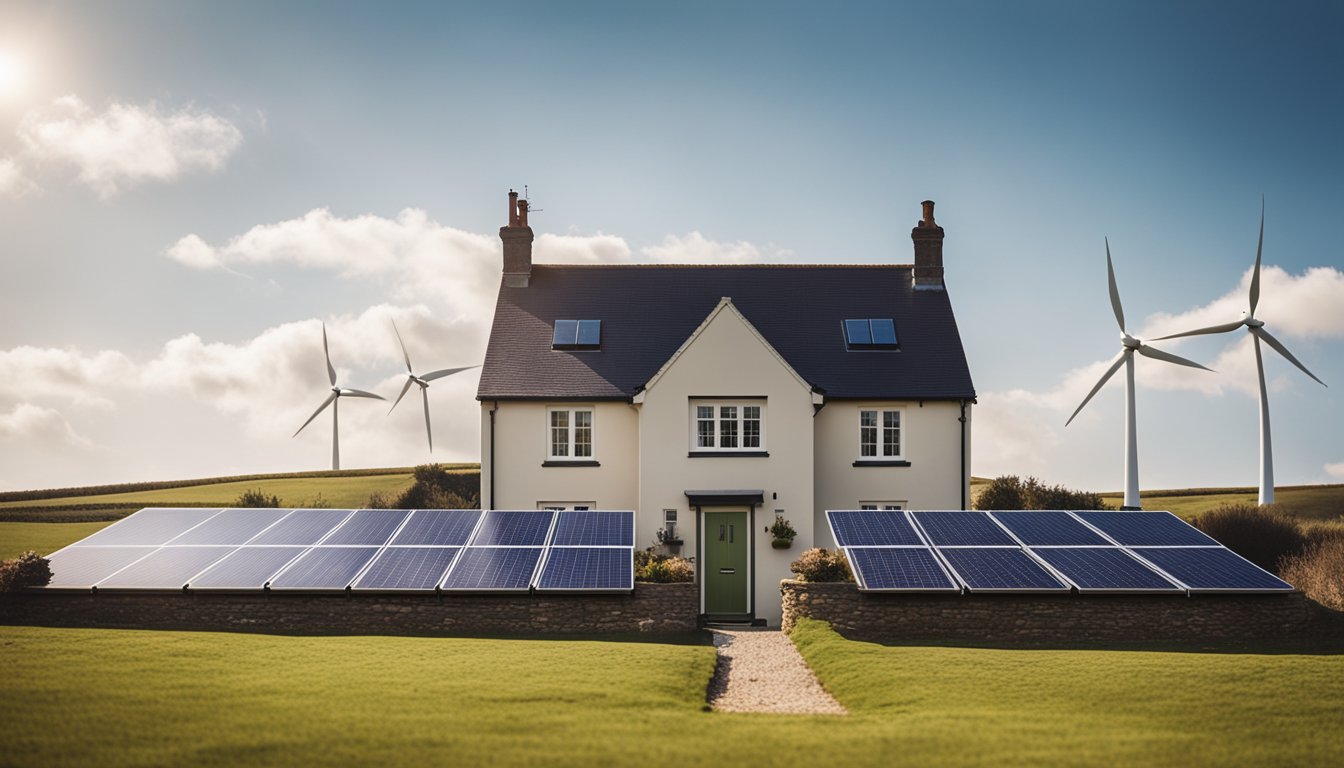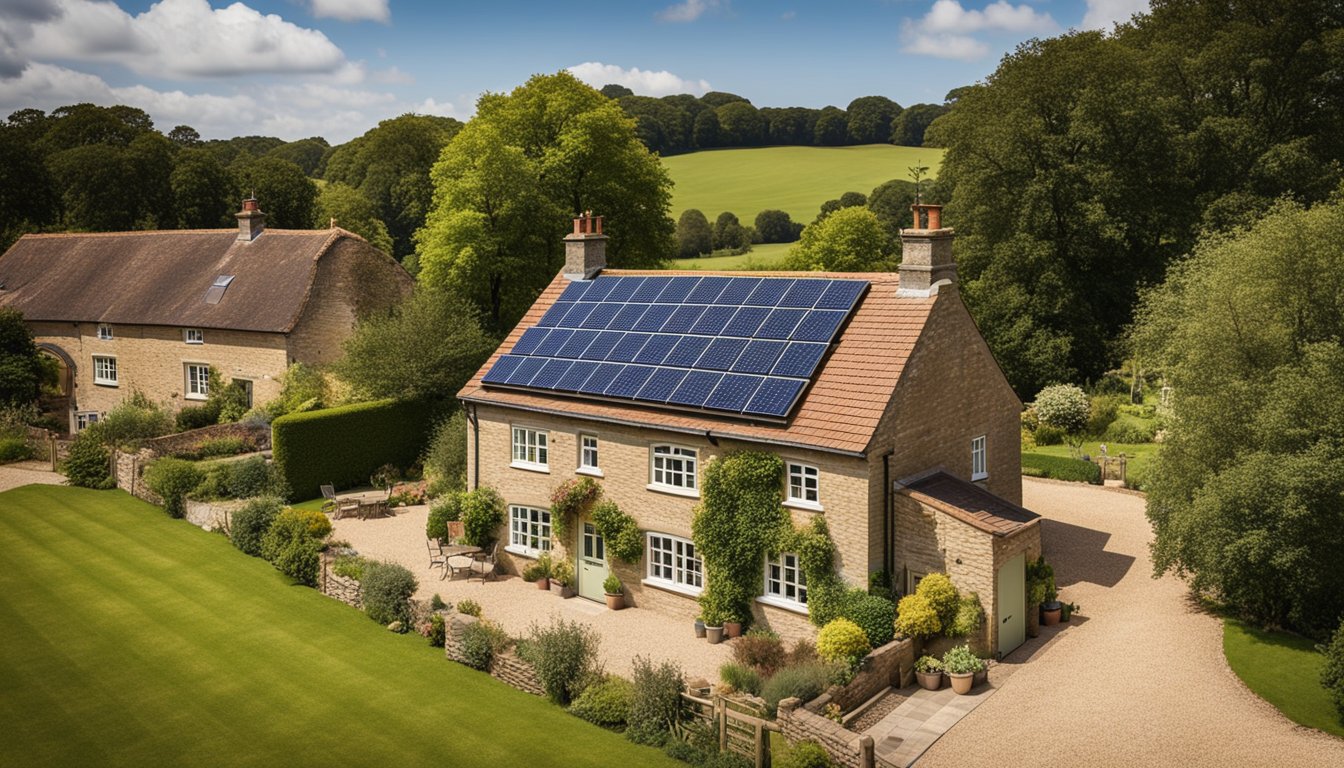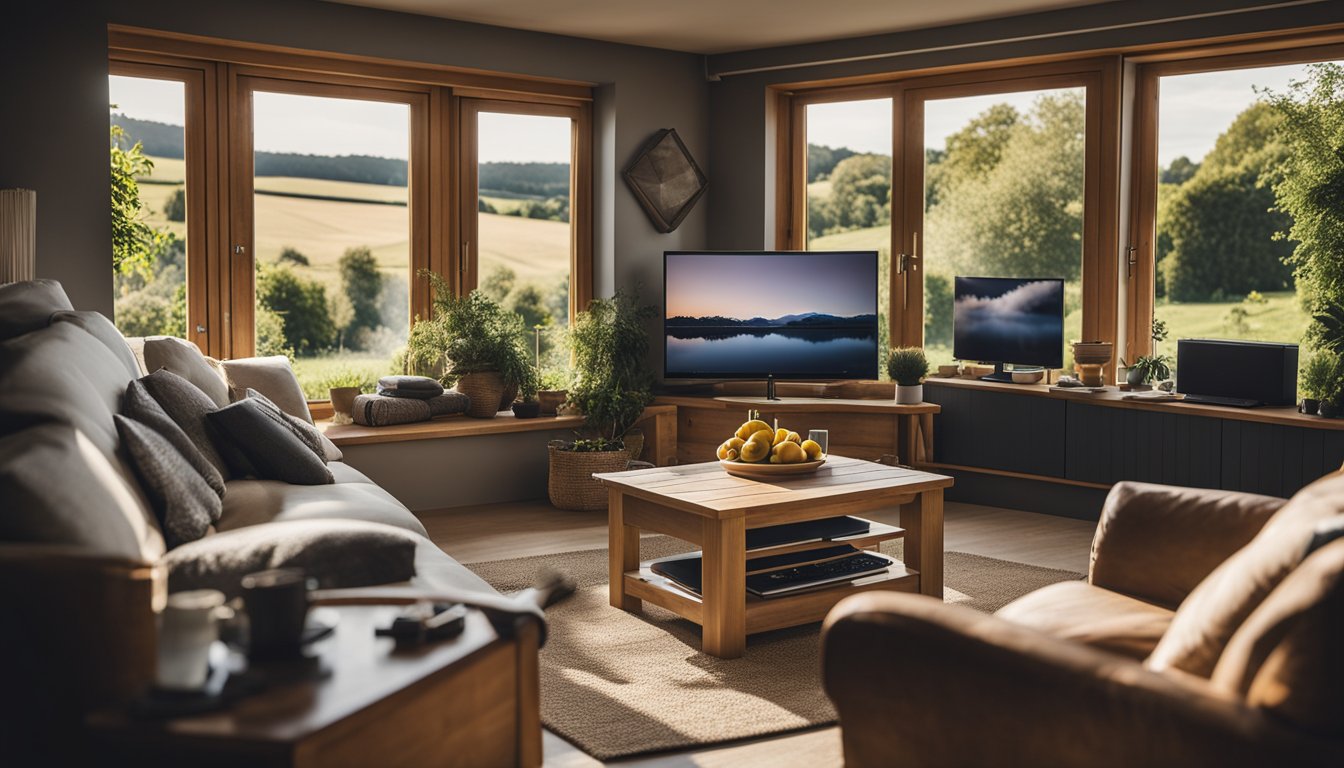Late updated: 17 Dec 2024 13:12
Written by: Oliver Bennett
Eco-Friendly Tech Gadgets for Rural UK Homes: Innovating Sustainable Living
In the heart of rural UK homes, technology is not just advancing—it's becoming environmentally conscious. From cutting-edge heating solutions to ingenious bathroom tech, these eco-friendly gadgets are designed to enhance the sustainability of everyday living. Incorporating these sustainable gadgets not only improves energy efficiency but also reduces the environmental impact significantly.

We are eager to explore how these eco innovations seamlessly integrate with rural lifestyles, providing both comfort and cost-effectiveness. Smart technology, specifically designed for energy management, is proving to be the cornerstone of energy reduction efforts in these areas. This interest in sustainable living is not just a trend but a necessary evolution.
Rural homes face unique challenges, and addressing them with the right technology can make a profound difference. Our goal is to present practical solutions that can empower rural residents to embrace these advancements. Let's embark on this journey to understand how eco-friendly gadgets can transform rural living into a greener, more sustainable way of life.
Key Takeaways
- Eco-friendly gadgets enhance sustainability in rural UK homes.
- Smart technology aids in significant energy reduction.
- Practical solutions exist for rural sustainable living challenges.
Essential Eco-Friendly Tech for Rural UK Homes

In rural UK homes, eco-friendly technology helps harness natural resources effectively, conserve energy, and improve living efficiency. These tech solutions are crucial for those looking to reduce their environmental impact while enjoying modern conveniences.
Harnessing Solar Energy
For rural UK homes, solar panels offer an excellent way to capture and utilise solar energy. Many rural areas receive ample sunlight, making solar power a viable and sustainable energy source. By installing solar panels on rooftops, we can generate electricity to power our homes, reducing reliance on fossil fuels.
Solar-powered chargers are another handy gadget, especially beneficial for charging devices like phones and laptops. These portable chargers are perfect for those on the move, allowing us to harness energy from the sun, whether we are at home or away.
Solar charging systems not only save money on electricity bills but also contribute to a cleaner environment. These technologies help households adapt to changing energy needs without compromising on modern comforts.
Water Conservation Techniques
Water is a precious resource, and in rural areas, conserving it is vital. Water-efficient shower heads are a simple yet effective solution, enabling us to reduce water usage without sacrificing water pressure.
Smart irrigation systems are revolutionary for homes with gardens or small farms. These systems consider weather conditions and soil moisture to optimise water usage, ensuring plants get the required water without waste.
Additionally, installing rainwater harvesting systems allows us to capture and store rainwater for non-potable uses like gardening or cleaning. This helps reduce our dependence on mains water and promotes sustainable water management practices.
Improving Home Insulation And Heating
Proper home insulation is essential to maintain a comfortable indoor climate and reduce energy bills. Insulating walls, roofs, and floors can significantly lower heating demands, especially in colder months.
Heat pumps offer an energy-efficient alternative to traditional heating systems. By extracting warmth from the ground or air, these pumps provide an eco-friendly way to heat homes, even in rural areas.
Moreover, investing in double or triple-glazed windows can prevent heat loss, keeping homes warmer and reducing heating costs. These technologies are integral to creating an energy-efficient home environment that stands up to the demands of rural living.
Smart Gadgets for Energy Management and Reduction

In rural UK homes, smart gadgets are transforming energy usage by introducing sophisticated technologies. From intelligent climate control to efficient lighting solutions, these gadgets not only reduce energy consumption but also enhance convenience.
Intelligent Heating and Cooling Systems
Smart thermostats, like the Google Nest, are revolutionising heating and cooling efficiency. These devices learn our habits and adjust temperatures automatically, ensuring comfort while minimising energy waste.
They can be controlled remotely, allowing us to reduce energy usage when we're away. This ability to monitor and adjust settings from anywhere proves especially beneficial in rural areas where weather can vary.
An installation of a smart thermostat promises not only lower energy bills but also a more sustainable lifestyle. With additional features such as energy usage reports, we can track and optimise our heating patterns.
Energy-Saving Appliances and Lighting
Reducing energy consumption in rural homes is simplified with smart appliances and eco-friendly lighting. Energy-efficient appliances, such as LED bulbs and eco-friendly dishwashers, dramatically cut electricity usage.
LED lighting provides bright illumination while consuming far less power than traditional bulbs.
Smart plugs enable remote control of devices, ensuring they're only on when needed. An example is a low-wattage air fryer, which offers fast cooking with minimal energy. By integrating these technologies, our homes become not just smarter but also greener.
Advances in Sustainable Home Appliances
The latest in sustainable home appliances offers significant advantages in energy conservation. Modern eco-friendly dishwashers use less water and power, demonstrating innovation in daily essentials.
Smart home technologies further integrate appliances with our routines, optimising operations for peak efficiency.
LED lighting systems, when combined with these smart technologies, provide automated lighting solutions that adjust to activity and time of day. By investing in these advances, we embrace a future where energy management enhances our rural living while protecting the environment.
Frequently Asked Questions

Eco-friendly technology can tremendously benefit rural UK homes by promoting sustainability and reducing energy consumption. We explore the integration of cost-effective gadgets, renewable energy solutions, and other technology-driven approaches for these households.
What are some cost-effective eco-friendly gadgets suitable for rural homes in the UK?
Rural homes can benefit from solar-powered chargers and efficient LED lighting as budget-friendly eco-friendly gadgets. Smart thermostats and programmable timers also help manage energy use without breaking the bank. These options are affordable and contribute significantly to lowering household carbon footprints.
How can renewable energy technologies be integrated into rural UK homes?
Integration of renewable energy in rural homes can be achieved through solar panels or small wind turbines. These systems offer considerable energy savings and decrease reliance on non-renewable resources. Additionally, homeowners can explore biomass boilers as a renewable heating source.
What are the best energy-saving appliances for households in the UK countryside?
For those residing in the UK countryside, energy-efficient appliances such as A+++ rated refrigerators, washing machines, and dishwashers are ideal. Induction hobs and microwave ovens also conserve energy, allowing households to cut down on electricity usage while maintaining convenience.
How can water conservation be addressed through technology in British rural areas?
Technology can enhance water conservation through smart irrigation systems, which optimise water use in gardens and farms. Low-flow taps and showerheads are practical gadgets for reducing water wastage indoors, and rainwater harvesting systems help collect and utilise rainwater effectively.
What eco-friendly heating solutions are available for rural properties in the UK?
Heat pumps represent an excellent eco-friendly heating choice for rural properties. Ground-source and air-source heat pumps work efficiently to heat homes with lower emissions. Biomass boilers also offer a sustainable alternative, utilising organic materials like wood pellets for heating.
Which sustainable lighting options are most suitable for remote UK homes?
Remote UK homes can benefit significantly from LED lighting, known for its energy efficiency and longevity. Solar-powered outdoor lights provide sustainable outdoor illumination. Motion sensor-activated bulbs are another effective solution, ensuring that lights are used only when necessary.
